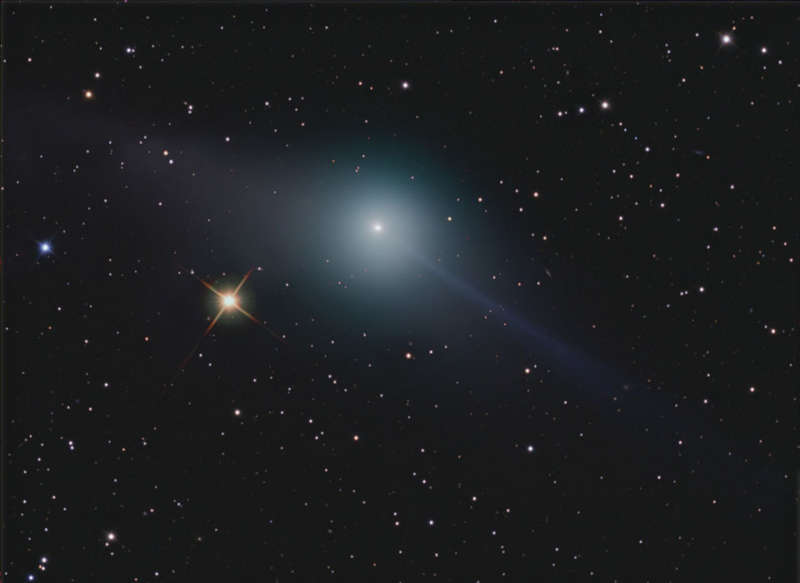
|
Credit & Copyright: Robert
P∆lzl
Explanation:
Why does
Comet Garradd have two tails?
Visible on the left,
Comet Garradd's
dust tail is composed of
ice and dust bits that trial the comet in its orbit around the Sun.
Visible on the right, Comet Garradd's
ion tail,
is composed of
ionized gas blown directly
out from the Sun by the solar wind.
Most comets
show two tails, although it is unusual for them to appear
to point in nearly opposite directions.
Comet Garradd is currently showing
opposing tails because of the Earth's opportunistic intermediate
viewing angle.
Subtle hues in the above
image captured last week show the dust tail as slightly yellow as its large grains
reflecting sunlight
achromatically, while the
ion tail shines slightly blue as the carbon
monoxide
ions reflect blue sunlight more efficiently.
In the center, surrounding the
comet's nucleus, is the green-tinted
coma,
so colored as it is a mix of dust and gasses that include
green-emitting
cyanogen.
Although now drifting out from the Sun, Comet Garradd
will make its closest approach to the Earth next week.
Like:
Follow APOD on
Facebook or
Google+
|
January February March April May June July August September October November December |
| ||||||||||||||||||||||||||||||||||||||||||||||||
NASA Web Site Statements, Warnings, and Disclaimers
NASA Official: Jay Norris. Specific rights apply.
A service of: LHEA at NASA / GSFC
& Michigan Tech. U.
Based on Astronomy Picture
Of the Day
